10 Best Plantar Fasciitis Exercises
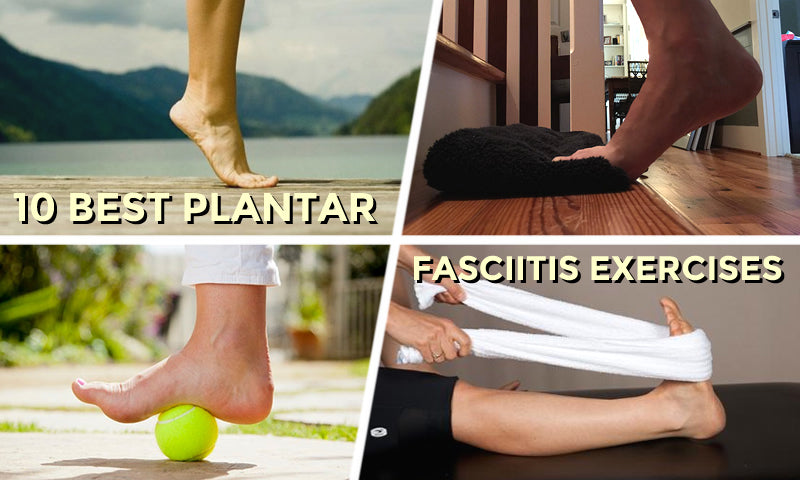
Plantar fasciitis is a foot disorder that’s the most common cause of heel pain. Typically it can cause a stabbing pain in the underside of your foot near your heel.
The condition can usually be treated with some orthotic insoles and some exercises. Therefore we have comprised a list of the best plantar fasciitis exercises to stretch and strengthen your feet.
What is Plantar Fasciitis?
Plantar fasciitis comes as a result of the ligament that runs from under the heel, along the sole of the foot, becoming swollen over time.
Typically patients report their pain to be the most severe with their initial first steps of the day or when they have had a long period of inactivity or rest. A third of people find that both their feet become affected together at the same time.
The causes of the condition are not entirely clear, however we do know that some of the risk factors for plantar fasciitis developing include; prolonged and repeated tension around the area in which the plantar fascia attaches to the bone, such as from standing for long periods of time, exercise and obesity.
Patients are usually advised to rest and try conservative treatment methods including pain relief medication, supportive insoles, and plantar fasciitis exercises and stretches so that the condition can resolve on its own without further medical intervention.
Best Plantar Fasciitis Exercises
It is preferred that you discuss with your healthcare practitioner before beginning any new exercises, especially if your condition is causing you severe pain. Each of the plantar fasciitis exercises listed below aim to strengthen and stretch the muscles in your feet, ankles and calves.
This can help treat and prevent the condition from coming back again in the future. They can be carried out on a daily basis at a moderate level. If you feel uncomfortable or any pain then you should stop.
1. Towel Scrunch
This exercise is one of the easiest to do as you remain seated for the whole duration of it. Aim to complete two sets of this exercise with each foot a day.
- Begin by laying out a towel on the floor and place your foot flat on top.
- Now draw the towel towards yourself as you scrunch your toes (make sure that your heel remains in contact with the floor throughout the exercise).
2. Marble Pick-Ups
This is another enjoyable exercise where you can stand or remain seated. You should aim to spend 5 minutes a day doing this exercise with each foot.
- Place a bowl on the floor and some marbles or similar sized small balls or objects (such as stones) in front of you.
- Pick up each marble using just your toes and transfer them to the bowl.

3. Arch Lifts
This plantar fasciitis exercise targets the muscles directly on the sole of the foot which support the arches. Aim to spend about one minute a day with each foot doing this exercise.
- Start by sitting on a chair and placing your foot flat on the ground.
- Now flex your muscles so that you lift the arch of the foot off of the floor – make sure that your heel and ball of the foot remain in contact with the ground.
- Hold this stretch for a few seconds then relax.
You can make it more difficult for yourself eventually by performing the stretch as you are stood up.
4. Heel Raises
Weakness of the calf muscle can contribute to the development of plantar fasciitis, as it directly affects how the foot moves. Heel raises can strengthen calf muscles and are simple to carry out. Aim to complete 3 sets of heel raises and 10 repetitions a day.
- Start by standing and resting both your feet flat on the floor. If you require support feel free to hold onto something.
- Push up with the balls of your feet and raise your heels off the ground
- Hold this tip-toe position for a couple of seconds then lower yourself back down slowly.
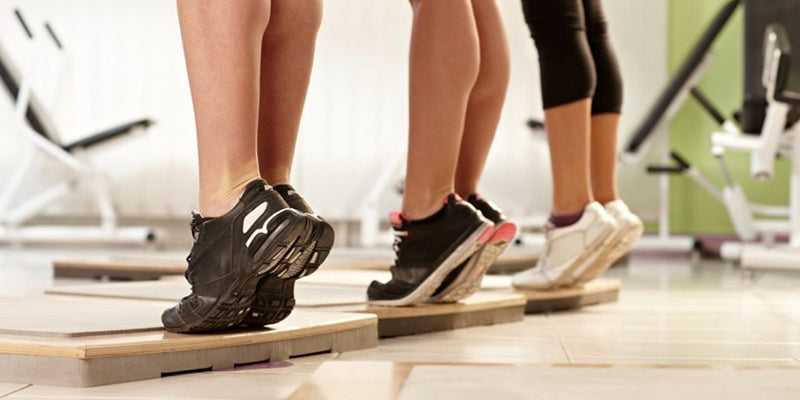
5. Heel Raises on the Stairs
This is very similar to the exercise as above, however a little more challenging. Do this in sets of 10, 3 times a day.
- Stand on a step with your heels over the edge of the step.
- Push up on the balls of your feet and complete a heel raise.
- As you lower yourself back down make sure that your heel does not drop below the level of the step.
6. Tip Toe Walking
Spend a couple of minutes every day walking around on your tiptoes to strengthen your calf muscles as well as improve the control and stability you have around your ankles. It may help to use a support such as a walking frame or walking stick.
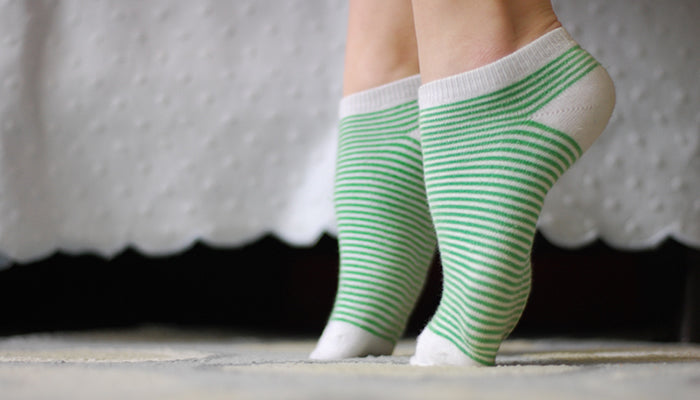
7. Single Leg Standing
You can easily build this simple step into part of your daily routine. Just lift one foot off the floor and balance on the other foot, for 5 minutes twice a day. This can help you improve your balance and the control you have in your feet and ankles, which makes it an excellent exercise for preventing plantar fasciitis.
8. Towel Stretch
This is an easy stretch you can do while sitting on the floor or on your bed.
- Sit down on the floor or bed with both your legs outstretched in front of you.
- Place a towel which is rolled up underneath the balls of your feet and hold the towel from both ends.
- Gently pull the towel towards yourself while keeping your knees straight.
- Hold this position for half a minute and you will feel some instant pain relief, as well as being able to stretch out your muscles and ligaments on the base of your foot.
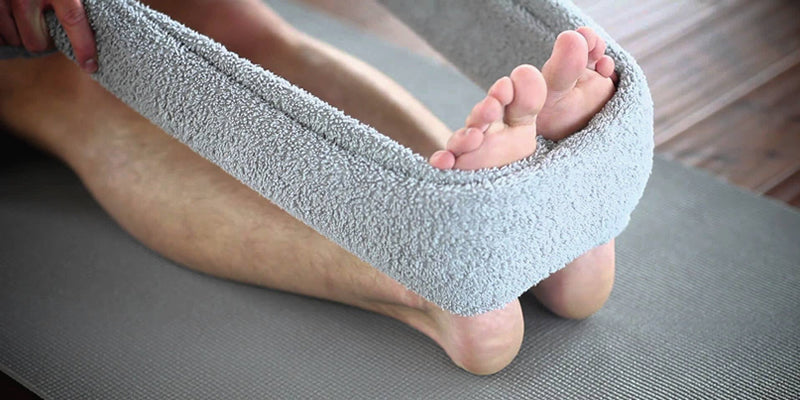
9. Toe Stretch
Aim to do this stretch twice per session, several times a day.
- Sit on a chair and extend the leg of the foot which is affected by plantar fasciitis, make sure that your heel is on the floor.
- Reach down and pull your big toe upwards and back towards yourself away from the floor.
- Hold this position for up to thirty seconds.
10. Foot Roller
You can do this exercise with a foot roller, a massage ball or simply an iced bottle. You can roll for as long as you feel comfortable, but a good time to aim for is 10-15 minutes.
- Place a tennis ball under your foot
- Roll it back and forth with the arch of your foot.
You can initially do this exercise as you are seated (watching TV or eating dinner) and then progress to when you stand up. This exercise will not only massage the affected ligaments of plantar fasciitis, it will strengthen the foot muscles as you control the roller.
Infographic
We've created an infographic for our "10 Best Plantar Fasciitis Exercises". Feel free to share it on social media or on your website/blog but please provide a backlink to this article and cite Feet&Feet as the source.
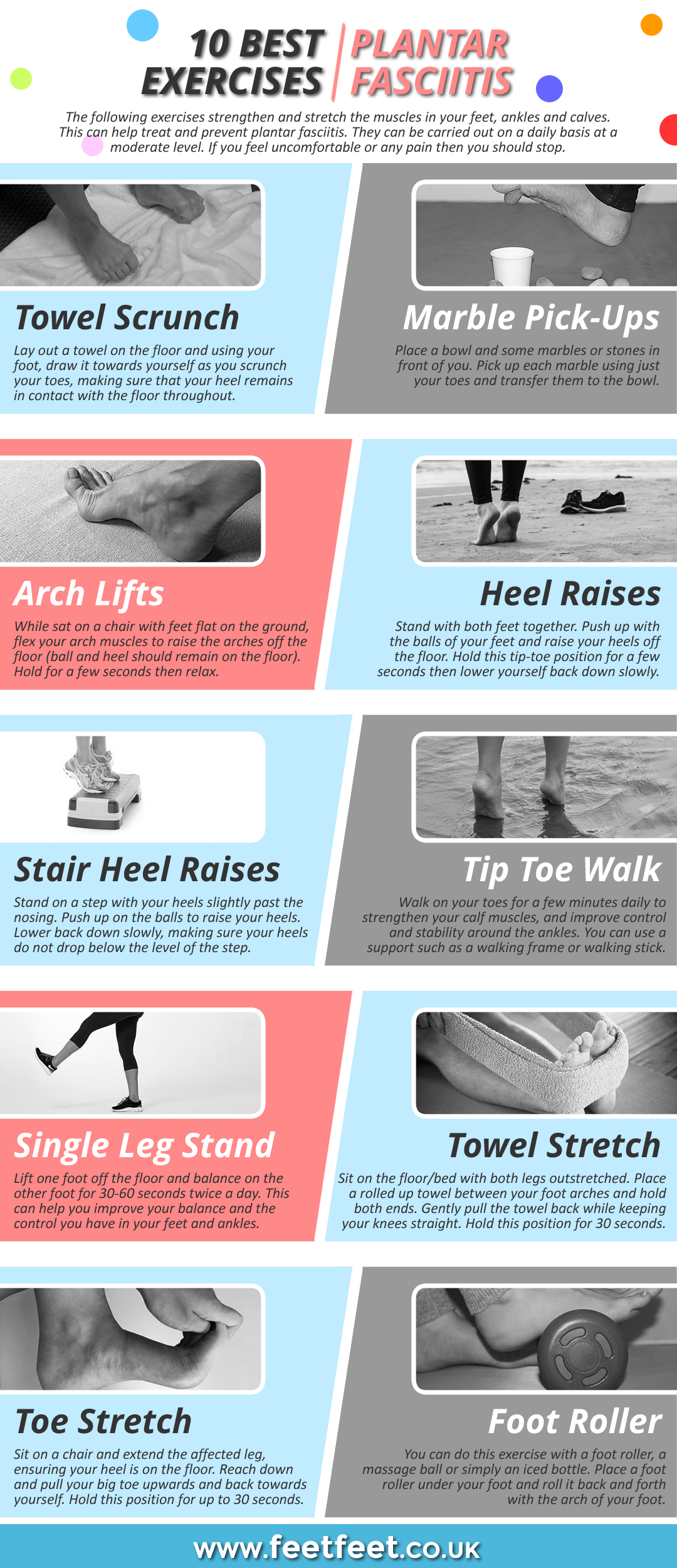
To enlarge the above infographic, right-click on the image and click "View Image".
Final Word | Best Plantar Fasciitis Exercises
In order to see results, you need to be stretching and strengthening these muscles on a regular basis, using some of the best plantar fasciitis exercises listed above.
After a couple of weeks, you will most likely notice that your symptoms and pain are subsiding, in in the long term, it will help prevent the condition from developing again.

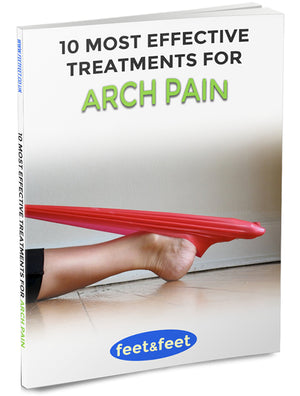
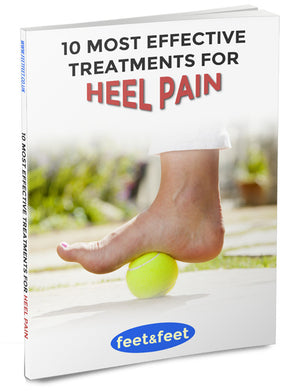



Comments
Leave a comment